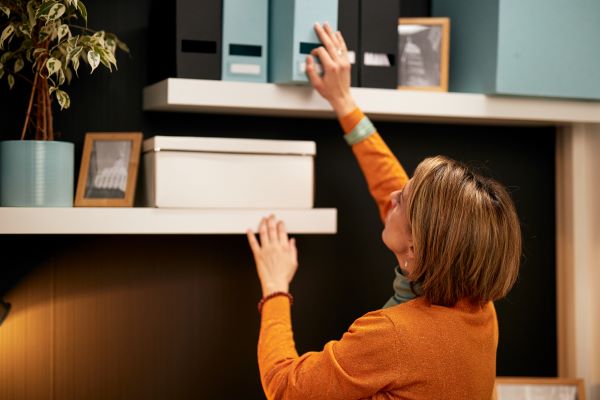Weather The Next Storm with a Grab & Go Binder
Posted on September 1, 2023

Those of us who fled Southwest Florida in the hours before Hurricane Ian recall the feeling all too well. What do we grab on the way out the door? What should we protect if the worst happens?
For many, the worst did happen last September 28th. Storm surge flooded prized possessions. Wind ripped holes in roofs, then drenching rains ruined home offices filled with important documents. In the months after Ian, families were left picking up the pieces of their lives, and often found themselves having to reassemble critical information washed away in the storm.
A simple tool nicknamed a “Grab & Go” binder could help mitigate some of that stress and heartache in the event of a future hurricane, natural disaster or other emergency situation.
The term “Grab & Go” represents convenience, ease and portability. An organized packet of important documents neatly prepared and standing at the ready, this binder should be the first thing you pack as you flee your home from a potentially dangerous situation.
“We have taken that concept and applied it to crisis management for families,” said Annalee Kruger, founder and president of Care Right, during a Speaker Series event presented by the Trust Company. “With a Grab & Go binder, all of your work is done in advance so everything you need is right there at your fingertips.”
Kruger, founder of the Bonita Springs, Florida-based Care Right – a concierge service for senior care planning that helps families navigate the complexities associated with the aging process – promotes the “Grab & Go” binder concept for aging individuals who might be rushed to a hospital for a medical emergency. But it is also a tool for people of any age to prepare for an array of circumstances in which you may be forced to evacuate your home.
Not only should your binder contain hard to replace government documents like birth certificates, Social Security cards, marriage license, and passports – but be sure to include estate documents and wills, banking information, insurance policies, home and car titles, contracts, and medical directives.
Storm season is a critical time to be sure the estate documents mentioned above are current. Are your personal assets titled properly? Are your beneficiaries listed correctly on all your accounts? Is your Will up to date? Time passes and choices change. Do your power of attorney (POA) and healthcare power of attorney (HPOA) documents still have the correct person listed in the event they are needed? Take time to visit with your trusted advisors to update all of these, so you’re secure when time is of the essence.
Often, homeowners keep these documents in a safe or a secure lockbox. But those who have experienced several feet of storm surge know that even a safe can’t always keep items protected under those conditions. A “Grab & Go” binder will save them.
Outside of emergencies, it’s always a good idea to keep photocopies in your binder of the items in our wallet in case they are lost or damaged. Make a copy of your driver’s license, credit cards (including the back so you’ll have the phone numbers in case you need to report a lost or stolen card), health insurance and prescription cards, and other IDs from work, school, businesses or organizations.
Also, don’t forget important contacts. In the age of smart phones, most of us rely on our address book functions in our cell phones to save phone numbers and addresses. But in an emergency, you might not have access to your phone. Keep those key contacts at easy reach in your “Grab & Go” binder.
A simple three-ring binder available at your local office supply store is a great starting point for designing your custom planner. Use plastic sheet protectors, plastic pockets, tabbed dividers and envelopes to make your binder useful, neat, and ready at a moment’s notice.
Jeffrey A. Muddell, MBA, CFP
President, Sanibel-Captiva Office
LEGAL, INVESTMENT AND TAX NOTICE: This information is not intended to be and should not be treated as legal advice, investment advice or tax advice. Readers, including professionals, should under no circumstances rely upon this information as a substitute for their own research or for obtaining specific legal or tax advice from their own counsel. Not FDIC Insured | No Guarantee | May Lose Value